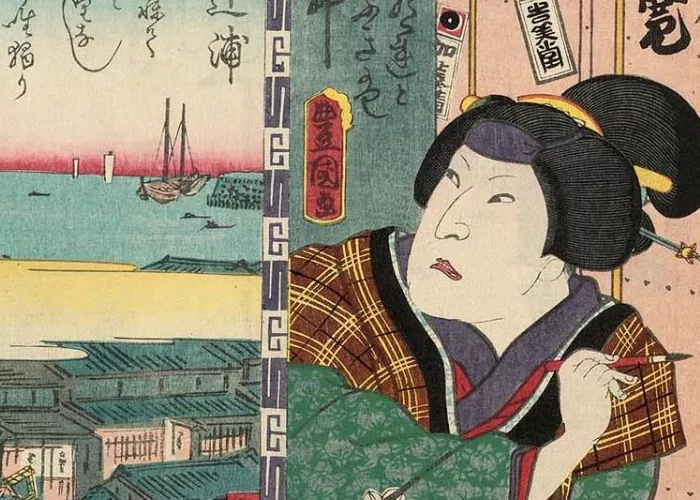Welcome to Poem of the Day – Just for Today by Kaga no Chiyo.
Kaga no Chiyo, also known as Chiyo-ni, stands as one of the most celebrated haiku poets of Japan’s Edo period. Her poem Just for Today encapsulates her sensitivity to the transient beauty of life, a hallmark of her artistry. Chiyo’s works often draw from the natural world, intertwining human emotions with fleeting moments in nature. This essay will explore the intricate beauty, emotional resonance, and philosophical depth of Just for Today, illustrating why this haiku holds enduring appeal.
Just for Today Poem
just for today –
using men
for rice-planting.
Just for Today Poem Explanation
At first glance, the haiku seems disarmingly simple. It describes a solitary, ephemeral experience—an autumn wind blowing through the poet’s hair. However, as with all great haiku, its power lies beneath the surface. This poem is not just a reflection of a seasonal moment; it is an invitation to embrace impermanence and spontaneity, key tenets of Zen Buddhism, which deeply influenced Chiyo’s work.
A Celebration of Ephemerality
The phrase just for today is central to the poem’s theme. It suggests a deliberate, mindful surrender to the present moment. This act of letting go mirrors the Japanese concept of mono no aware, a gentle sadness or awareness of the impermanence of things. The poet chooses to relinquish control, allowing the wind—a metaphor for the uncontrollable forces of life—to shape her experience. Chiyo’s use of just for today indicates an acceptance of temporality and a recognition that each moment, however fleeting, holds profound beauty.
Nature as a Mirror of Emotion
Chiyo-ni masterfully uses nature as a lens through which human emotions are reflected. The autumn wind is not just a seasonal element; it embodies both freedom and inevitability. Wind, by its very nature, is uncontrollable and transient. In this context, it becomes a symbol of life’s unpredictability. By allowing the wind to tangle her hair, the poet embraces a state of vulnerability and openness, aligning herself with the natural flow of existence.
Autumn, a transitional season, carries its own significance. It represents change, maturity, and the passage of time. In many haiku, autumn is associated with melancholy, but in Chiyo’s hands, it becomes an opportunity to harmonize with life’s impermanence. The tangling of her hair, a typically mundane act, is elevated into a poetic gesture of unity with nature.
The Art of Minimalism
Chiyo’s haiku demonstrates the elegance of minimalism. With just a few words, she evokes a vivid image, stirs an emotional response, and conveys a philosophical truth. Each line is meticulously crafted to balance the physical and the metaphysical. The sparse language leaves room for the reader’s interpretation, a hallmark of haiku’s universal appeal.
The simplicity of the language also serves to highlight the immediacy of the experience. There is no extraneous description or commentary—only the bare essentials needed to draw the reader into the moment. This economy of words is not restrictive; rather, it allows the poem’s emotional resonance to expand boundlessly.
Resonance with Modern Audiences
Despite being written centuries ago, Just for Today resonates profoundly with modern readers. In a fast-paced, often chaotic world, the poem’s emphasis on mindfulness and acceptance offers a gentle reminder to pause and immerse ourselves in the present. It encourages us to relinquish our need for control and to find beauty in life’s fleeting, unscripted moments.
Furthermore, the haiku’s universality transcends cultural and temporal boundaries. The sensation of wind in one’s hair, the changing seasons, and the passage of time are experiences shared by all. Chiyo’s ability to distill these common experiences into a moment of profound insight is a testament to her enduring genius.
Conclusion
Kaga no Chiyo’s Just for Today is much more than a simple seasonal observation. It is a deeply philosophical reflection on impermanence, mindfulness, and the interconnectedness of humans and nature. Through her exquisite use of minimalism, Chiyo invites us to embrace the beauty of the present moment, no matter how fleeting or tangled it may be. Her haiku remains a timeless reminder that life’s most profound truths often lie in its simplest moments.

